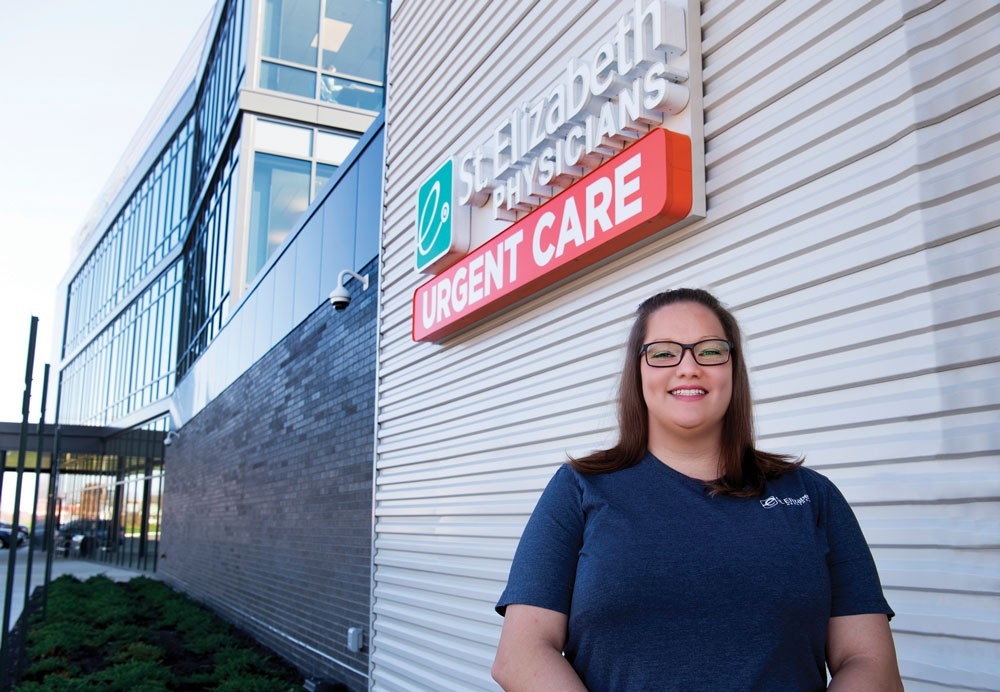During the first crucial months of the pandemic,
Erin Kelley’s career shifted dramatically. Kelley, a 2011 alumna of Northern Kentucky University and professor of
nursing at NKU, has not only been teaching future nurses, but she was also a bedside nurse herself at St. Elizabeth Healthcare.
“I balanced it all by reminding myself that people need me—my patients and my students—and I am blessed to have been in a position to care for both of them,” she says.
Nobody could have predicted how quickly COVID-19 overtook our way of life, but one can always prepare themselves to the best of their ability for the future. While feeling “as prepared as a new graduate can be when starting in a new career” after graduating from NKU, Kelley can confidently say she felt prepared for what was to come in her career.
“The thing I remember most is how caring the professors were. The clinical reasoning courses and simulations taught me to be flexible and think innovatively—two things that are incredibly important when working in the medical field,” Kelley says. “Health care has always been an unpredictable field, but even more so during a pandemic.”
Working shifts that were “long and sweaty,” Kelley had first-hand experience of the exhaustion and fear that comes with working in the medical field during one of the worst outbreaks in decades.
“You have to learn to adapt,” she says. “I was in awe at the dedication that my fellow nurses had. They are truly some of the most remarkable people I’ve ever met. The sacrifices they’re making every day for their patients and students is amazing.”
Medical professionals have been on the frontline during the COVID-19 pandemic, and the impact it’s had on nurses, doctors and faculty alike has been crystal clear.
“The only way to survive a pandemic is as a team. St. Elizabeth has been great about keeping workers protected and supporting their wellbeing during this time,” she says.








